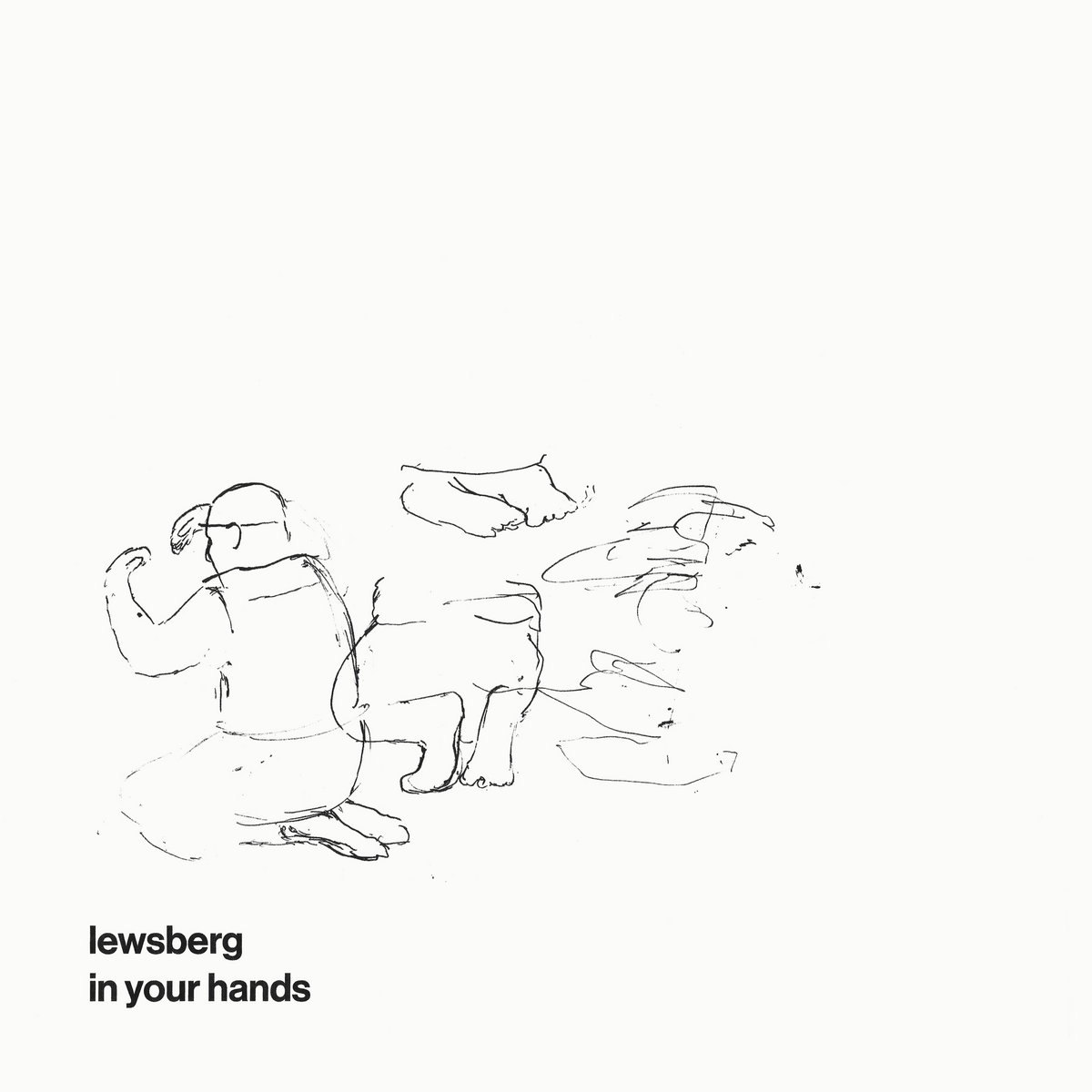Lewsberg have always taken that understated left turn. While the general consensus keeps telling us a social media presence is needed for audience exposure, this group has been refreshingly fine with remaining in absentia through and through. And where most bands indulge in stage hijinks and banter to try and win over their audience, the Rotterdam outfit has maintained a stoic, stationary disposition. As the year now draws to a close, people are carefully rounding up their year-end impressions… but of course, out of nowhere, Lewsberg release their third album In Your Hands without much fanfare.
Across their most minimalistic collection of songs yet – and with this band, that’s saying something – the listener meets a more reluctant Lewsberg. Just don’t mistake reluctance for second-guessing. In fact, within their cut-and-dry sonic instincts, In Your Hands is arguably more concise and hyperaware of its time and place than any previous Lewsberg record.
On “The Corner” – which introduces Arie Van Vliet’s homely violin melody – the lyrics leave room for contemplation without even a hint of counsel. “A brick is a brick to build”, Van Vliet enunciates in his typically brisk yet strangely magnetic Dutch cadence, only to later intone “A brick is a brick to throw”. Per usual, he trusts in the weight of the words without putting himself within the frame.
And for the port city of Rotterdam, those words do indeed hold significant merit, especially because it has never quite scratched its rebuilding itch since World War 2. The combination of a serious global pandemic, police violence against peaceful housing crisis protestors, and the inherently racist Rotterdamwet has left it with overwhelming questions on how to move forward. A city of constant movement and progress now seems in stasis, and concurrently, so is Lewsberg.
Taking a similar blueprint as their excellent B-side “During The Service”, Lewsberg merely get by on sampled drum loops – often just a tom and a tambourine –, Michiel Klein’s splintered melodies and Shalita Dietrich’s nimble bass playing. The Dietrich-sung opening cut “Departure” seems to travel at the height of disillusionment: as we reemerge from the rubble, we have stopped recognizing what we thought we knew, and in knee-jerk fashion, we make an attempt to move on from the past. Of course, in Lewsbergian fashion, the track cuts off prematurely before it can fully venture forth.
“Getting Closer” solemnly delivers on its promise, leaning almost solely on Van Vliet’s concrete, bone-dry delivery. “My fingertips are aching / And I can’t even feel my toes / And I can see the way it goes,” he deadpans. Although sprechgesang has been quite the fad for bands these past few years, there’s something about that strange Lewsberg syntax that’s just endlessly captivating – the way its sheer hypnotic emptiness lulls the listener into a state of reflection. Lewsberg seem to weaponize that suggestive power more than ever, no less on their most subdued recordings yet.
Like a barely flickering streetlight, “Dependency” and “All Things” basically do nothing but endure in threadbare fashion. Any other band would be accused of being dull, but again, Lewsberg make their listener a natural voyeur, eager to fill in even the biggest of gaps. “I’m not afraid to stop / I could go on forever”, the latter song diffidently states. Even as the quote-unquote romantic idea of Rotterdam might be a thing of the past, there’s comfort in knowing the city’s pulse is still palpable in Lewsberg’s ever inscrutable music, if even just barely.

